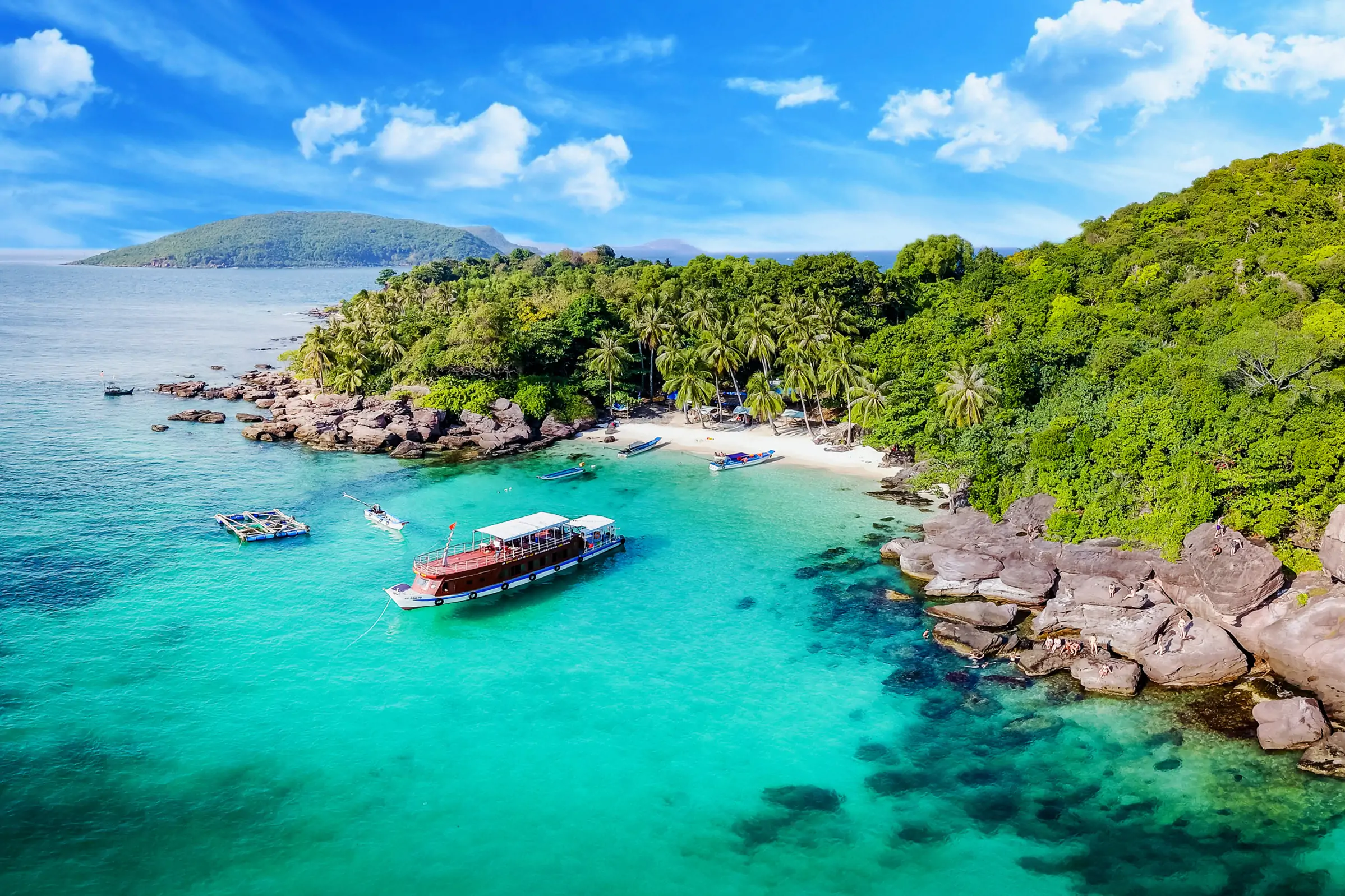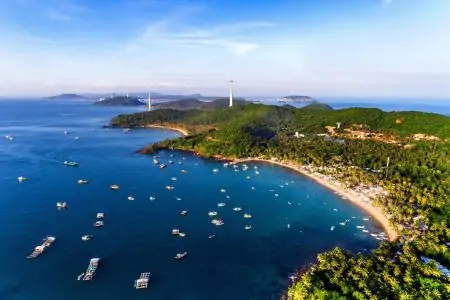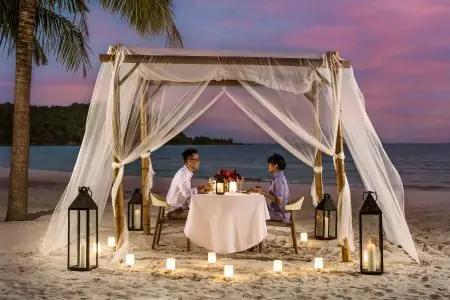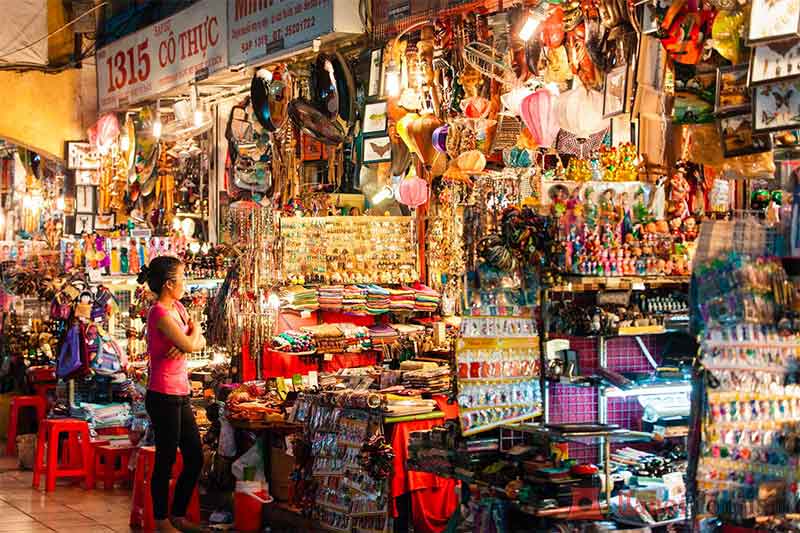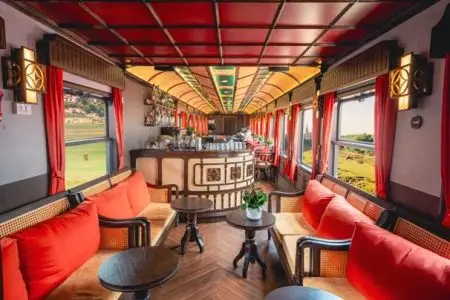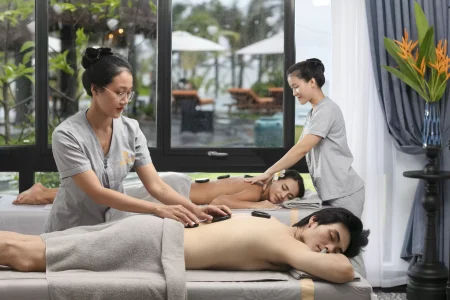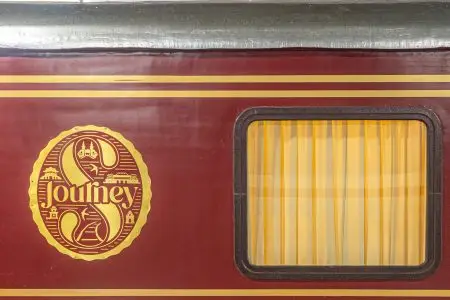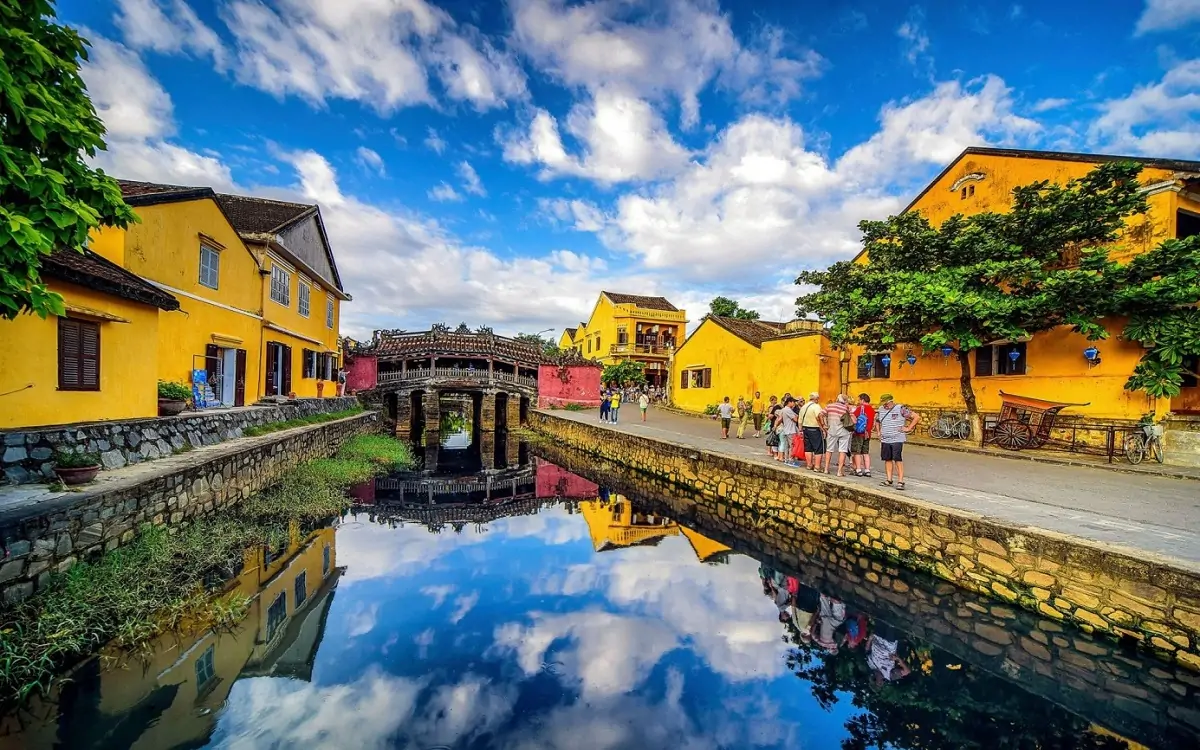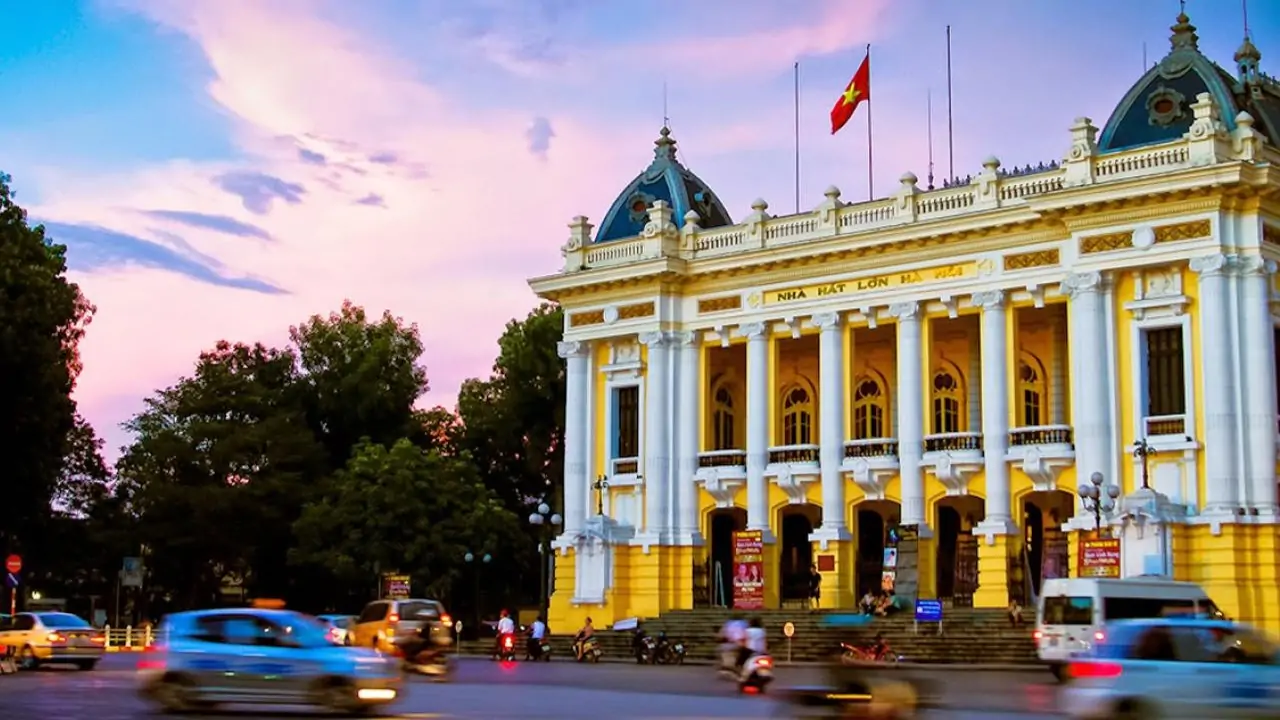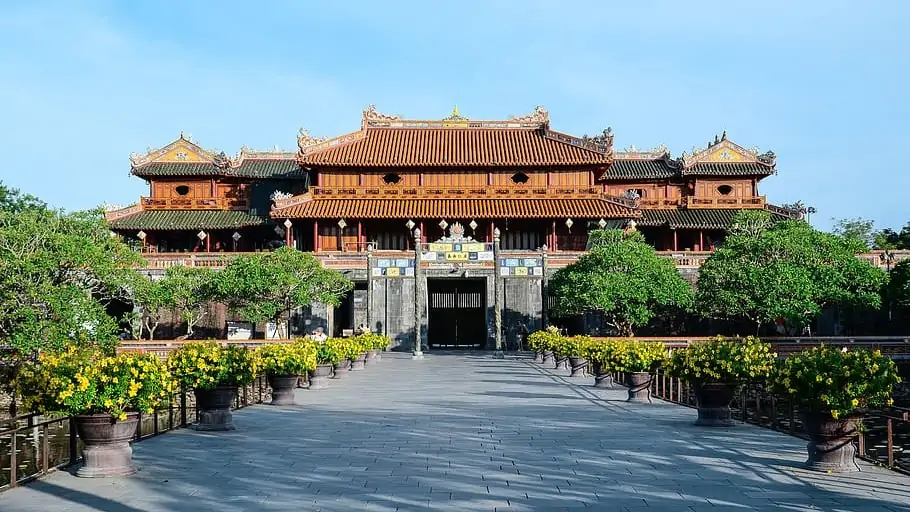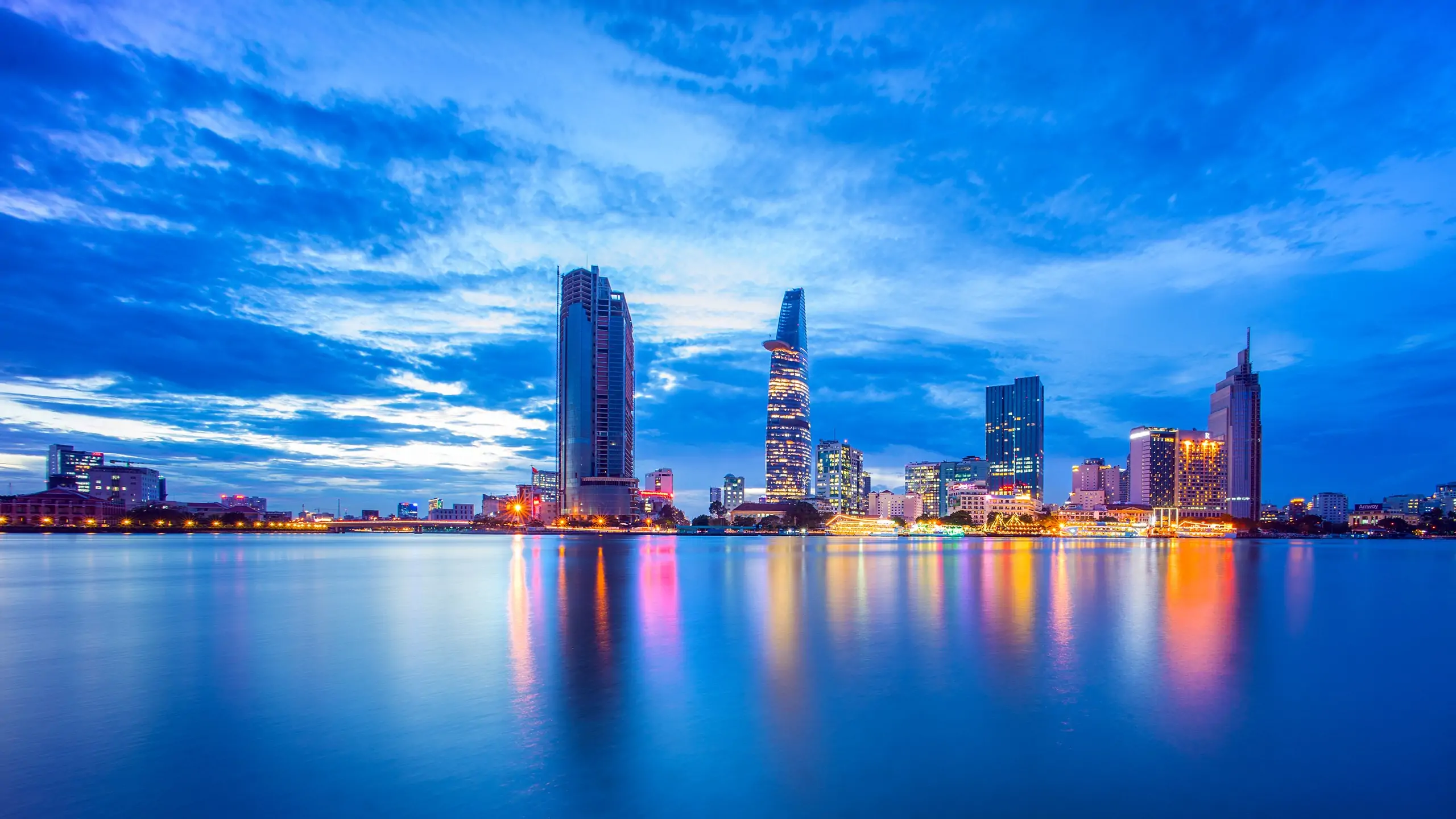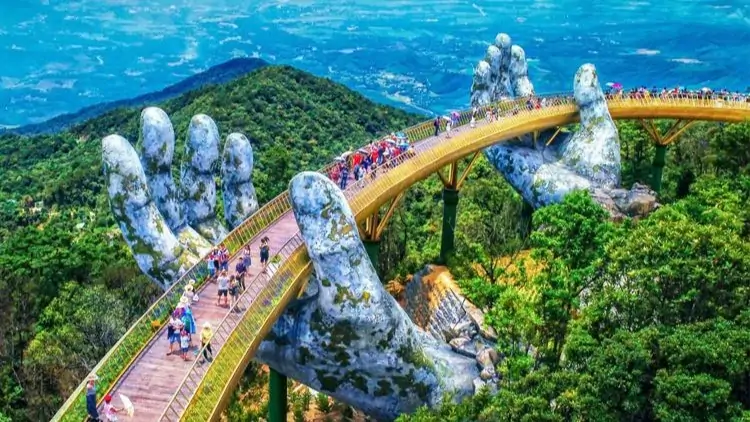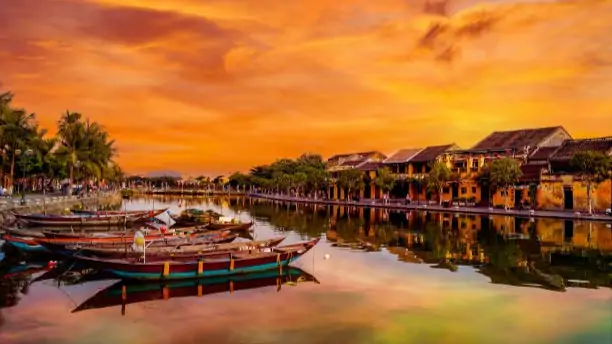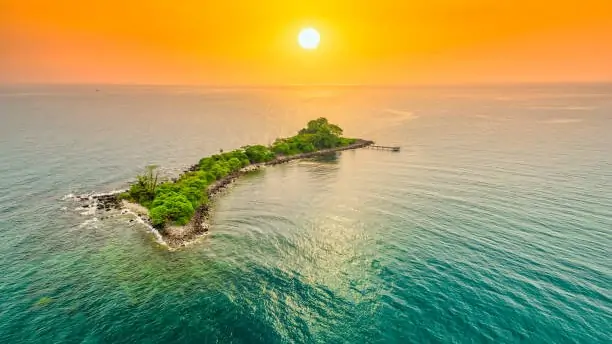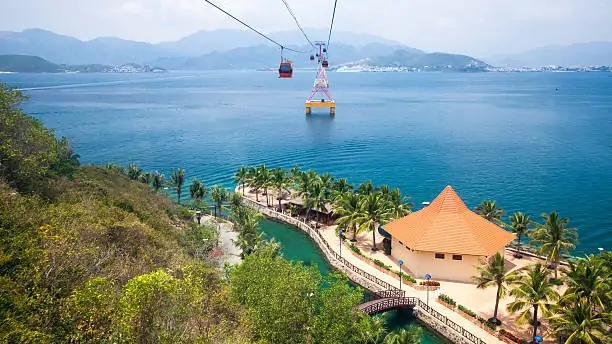Com Tam (Steamed Broken Rice)
Com Tam is an iconic dish from Saigon, Vietnam that is deeply rooted in the history and culture of the city. It is a simple yet satisfying breakfast, lunch, or dinner item typically made with broken rice grains cooked in a steamer. The Vietnamese people have long used broken rice in times of poverty and hardship, making Com Tam more than just a meal but a symbol of strength and resilience.
The flavor of Com Tam is subtle yet distinct, with the steamed broken rice cooked to a light crispness that pairs perfectly with various condiments such as fish sauce, garlic, and chili. The addition of pork, shrimp, or other meats adds an extra dimension of flavor while still allowing the broken rice to shine through.
Reference price: 25.000 – 65.000 VND/bowl. ( 1-3$ )
Reference address:
- Sa Bi Chuong: 179 Tran Binh Trong, Ward 13, District 5, Ho Chi Minh City
- Com Tam Phuc Loc Tho: 236 Dinh Tien Hoang, Da Kao, District 1, Ho Chi Minh City
- Com Tam Tu Map: 89-91 Dong Den, Ward 12, Tan Binh District
- Com Tam Bai Rac: 73 Le Van Linh, Ward 13, District 4, Ho Chi Minh City
Banh My (Saigon Baguette)
My is a signature dish in Vietnam that has become popular among locals and tourists alike. This delicious bread can be found on the street corners of Saigon and usually comes with various toppings such as Chinese sausage, lean pork paste, egg, chicken, and pork. This dish has a unique flavor, making it a must-try for anyone who visits Saigon. The combination of various ingredients makes for a hearty and flavorful sandwich that can be enjoyed any time of day. It is also surprisingly affordable, making it an attractive option for those looking to get their street food fix. All-in-all, Banh My is an excellent example of the delicious cuisine available in Vietnam and definitely worth a try.
Reference price: 25.000 – 65.000 VND/piece. ( 1-3$ )
Reference address:
- Hoang Yen – Saigon Bakery: 654/1 Pham Van Chi, Ward 8, District 6, Ho Chi Minh City
- Tu Hai Banh Mi Sticks: 356 Dinh Tien Hoang, District 1. Ho Chi Minh City
- Huynh Hoa Bread: 26 Le Thi Rieng, Ben Thanh Ward, District 1, Ho Chi Minh City
- Co Diep Bread: 238 Vo Thanh Trang, Ward 11, Tan Binh District, Ho Chi Minh City
- Hoa Ma Bread: 53 Cao Thang, District 3, Ho Chi Minh City
Pha Lau dishes
Pha Lau is a popular street food in Ho Chi Minh City, Vietnam, made of various animal organs including stomach, intestine, lungs, liver, and heart. The organs are marinated with spices and then fried until golden brown before being boiled until tender. Coconut milk is the main ingredient of the broth which gives it a sweet and fatty flavor. Eating Pha Lau with bread adds an extra delicious twist that can only be found in Saigon. The dish is widely available at small alleys throughout the city and appeals to both local tourists and visitors from afar due to its unique taste. In conclusion, Pha Lau is definitely a must-try for anyone visiting Ho Chi Minh City and wanting to experience the true flavors of Saigon.
Reference price: 35.000 – 65.000 VND/dish ( 3-4$)
Reference address:
- Pha Lau Mr.Li: 1A Suong Nguyet Anh, District 1, Ho Chi Minh City
- Pha Lau Mrs.Thao: 243 Ton Dan Street, Ward 15, District 4, Ho Chi Minh City
- Pha Lau Mrs. Nui Saigon: 243/30 Ton Dan Street, Ward 15, District 4, Ho Chi Minh City
- Pha Lau Mrs. Hat: 533 Ba Hat, Ward 8, District 10, Ho Chi Minh City
- Pha lau Mrs. Oanh: Alley 200 Xom Chieu, Ward 14, District 4, Ho Chi Minh City
Banh Trang Tron (Rice Paper Salad)
“Banh Trang Tron” is a Saigon street food dish that has become increasingly popular throughout Vietnam. This savory snack is composed of small pieces of raw beef jerky, dried shrimp, quail eggs, mango, laksa leaves, satay, and shrimp. These ingredients are all then wrapped in a thin layer of rice paper, which adds an interesting texture to the dish. The spicy and slightly sweet flavor of the laksa leaves provides a unique depth of flavor not found in many traditional Vietnamese dishes.
The best part about this street food is that it can be eaten on the go or enjoyed while sitting in one of the many street-side eateries. The small size of the dish also allows for a quick meal, making it ideal for busy urbanites.
Reference price: 15.000 – 35.000 VND/dish (1-2$)
Reference address:
- Banh trang tron Sai Gon Hao Hao: Hoa Hao Street, Lot S, Ngo Gia Tu apartment building, District 10, Ho Chi Minh City
- Banh trang tron Long: 34 Nguyen Thuong Hien, District 3, Ho Chi Minh City
- Banh trang tron Sai Gon Mr Vien: 38 Nguyen Thuong Hien, Ward 5, District 3, Ho Chi Minh City
- Banh trang tron Sài Gòn Thuy Long An: 108/2 Le Tu Tai, Ward 4, Phu Nhuan District, Ho Chi Minh City
- Banh trang tron Nhat Quynh: 78/10 Ho Thi Ky, Ward 1, District 10, Ho Chi Minh City
Banh Trang Nuong (Grilled Rice Paper)
Banh Trang Nuong, or grilled rice paper, is a simple but delicious dish that has been beloved by the people of Saigon for generations. This dish is so popular because it is easy to make and very cheap, yet still provides an unforgettable flavor. The thin rice paper is placed on a griddle and then topped with a mixture of beaten eggs, scallions, and dried shrimp. A hint of chili sauce gives it an extra bit of kick that ties the flavors together beautifully. Banh Trang Nuong is a great dish for any occasion and can be enjoyed by everyone.
Reference price: 15.000 – 35.000 VND/dish (1-2$)
Reference address:
- Goc Da Lat: 386/43B Le Van Si, Ward 14, District 3, Ho Chi Minh City.
- Banh Trang Cao Thang: 61 Cao Thang, Ward 3, District 3, Ho Chi Minh City.
- Banh Trang C002: 002 Lot C, Apartment 23/49 Dinh Tien Hoang, Binh Thanh District, Ho Chi Minh City.
- Banh Trang Mam Ruoc: 173 Cao Thang, Ward 12, District 10, Ho Chi Minh City.
Hu Tieu (Noodles)
Hu Tieu is a delicious and unique specialty dish from Saigon. It is made with soft metal noodles combined with water, along with special spices to give it a strong flavor that is distinctly Southern. The combination of the flavors and textures makes Hu Tieu stand out from other noodle dishes.
The aroma of the spices fills the air as soon as you open the package and it just gets better from there. When cooked, the noodles are perfectly soft with a subtle flavor of the spices that really bring out the best in this dish. The addition of raw vegetables provides a nice contrast to the softer ingredients and creates an overall balanced flavor.
Reference price: 35.000 – 60.000 VND/bowl ( 2$-3$)
Reference address:
- Hu Tieu Pham Van Hai: 154/56 Pham Van Hai, Ward 3, Tan Binh District, Ho Chi Minh City
- Hu Tieu 18 Ly Thai To: 18 Ly Thai To, Ward 2, District 3, Ho Chi Minh City
- Hu Tieu Nam Vang: A65 Nguyen Trai, Ward Nguyen Cu Trinh, District 1, Ho Chi Minh City
- Hu Tieu 52 Tan Hung Dao: 52 Tran Hung Dao, Ward 11, District 5, Ho Chi Minh City
- Hu Tieu food stall with braised ribs: alley 192 Ngo Quyen, Ward 8, District 10, Ho Chi Minh City
Fried dough
The fried dough dish is made very simply using fried flour, eggs, shredded papaya, soy sauce, and green onions. Crispy fried dough with soy sauce gives a deep, tasty taste. Many visitors to Saigon must praise it since the meal appears to be basic, made from common materials, and simple to prepare, yet it has such a unique flavor. On cold days, come to Saigon to savor this delectable fried dough.
Reference price: 45.000 VND/dish
Reference address:
- Hoai Thuong- Fried dough near Cho Lon post office: 280 Hai Thuong Lan Ong, District 5, Ho Chi Minh City
- Dat Thanh Fried dough: 277 Vo Van Tan, Ward 5, District 3, Ho Chi Minh City
- Van Thanh Fried Flour – Vo Van Ta: Alley 185 Vo Van Tan, District 3, Ho Chi Minh City
- Fried Noodles, Fried Flour – Nguyen Kim: 187 Nguyen Kim, Ward 6, District 10, Ho Chi Minh City
Bo Kho (Vietnamese Beef Stew)
According to TasteAtla, which presents itself as a globe atlas of traditional meals, local ingredients, and genuine eateries, Bo kho (Vietnamese beef stew) ranks fourth among the top ten stews in the world. Bo Kho is full of juicy, fall-apart braised beef slices, herbs, aromatics, and a savory broth that pairs nicely with Vietnamese bread!
Reference price: 45.000 VND/dish
Reference address:
- Bo kho Tron: 706 Truong Sa, Ward 14, District 3, Ho Chi Minh City
- Bo kho Mrs Mai: 6 Thang Long, Ward 4, Tan Binh District, Ho Chi Minh City
- Me Chung Quan: 166 Ngo Tat To, Ward 22, Bình Thạnh District, Ho Chi Minh City
Xoi Saigon (Sticky rice)
Xoi- is not only a tasty and appealing food for many Saigon locals, but it is also an important part of Vietnamese culinary tradition. Vietnamese people like eating sticky rice for breakfast. Nobody knows how long or who originated this dish, but it is currently one of the most popular meals served at the breakfast table. I hope you give it a shot if you ever get the chance to visit Vietnam. You could choose to have a choice between salty and sweet flavors. People in Saigon prepare sticky rice on the spur of the moment; no matter what can be eaten with sticky rice, another unique sticky rice meal will emerge.
Reference price: 20.000 – 45.000 VND/bowl. ( 1-2$ )
Reference address:
- Sticky rice Mrs. Lan: 14b Ky Dong, District 3, Ho Chi Minh City
- Sticky rice in Ba Chieu Market: Ba Chieu Market, 318/1 Bui Huu Nghia, Ward 1, Binh Thanh, Ho Chi Minh City
- Mama Chang: 318 Hoa Hao, District 10, Ho Chi Minh City
Bap rang (Roasted popcorn)
It comes to Bap rang (Roasted popcorn), you undoubtedly already know how tasty and oily this Saigon street snack is. This meal is popular throughout the country due to its distinct flavor, which generates a distinct regional style. Bap rang is created with simple ingredients like sweet corn, dried shrimp, and green onions, as well as a little butter. The sweet and soft corn kernels combined with creamy butter, the crispiness of fried shrimp, the fat, and the scent of green onions all combine to make an unforgettable meal.
Reference price: 15.000- 30.000 VND/disc( 1$)
Reference address:
- Miss Ba – Stir-fried Corn with Salted Eggs: 24c Cao Thang, Ward 5, District 3, Ho Chi Minh City
- Stir-fried Corn in Turtle Lake: 118 Co Giang, Ward 2, Phu Nhuan District, Ho Chi Minh City
- SUDO Stir-fried corn with salted egg: 435/47/12c, 47 Huynh Tan Phat, Tan Thuan Dong, District 7, Ho Chi Minh City
Snail
Snail is a famous street dish in Saigon that is cooked in a variety of ways, giving it a distinct flavor. And the Saigon snail dish has a distinct Southern taste. Several different cuisines are made from various species of snails, such as boiling snails, fried snails with spicy tamarind, fried snails with chili pepper, grilled snails, and so on. It makes a meal with the dusty style of Saigon people when combined with the signature sweet dipping sauce, fiery chile, and salty figs. Snail foods are often seen and enjoyed throughout Saigon’s streets. Try this recipe in particular during the winter, as its unique hot and spicy flavor will provide you with a sense of relaxation on cold days.
Reference price: 80.000 – 200.000 VND/dish ( 3-10$)
Reference address:
- Oc Nhu: 650/4/29D Dien Bien Phu Street, Ward 11, District 10, Ho Chi Minh City
- Oc Nho: 178 Le Quoc Hung Street, Ward 12, District 4, Ho Chi Minh City
- Oc Dao: 212B/C79 Nguyen Trai Street, Nguyen Cu Trinh Ward, District 1, Ho Chi Minh City
